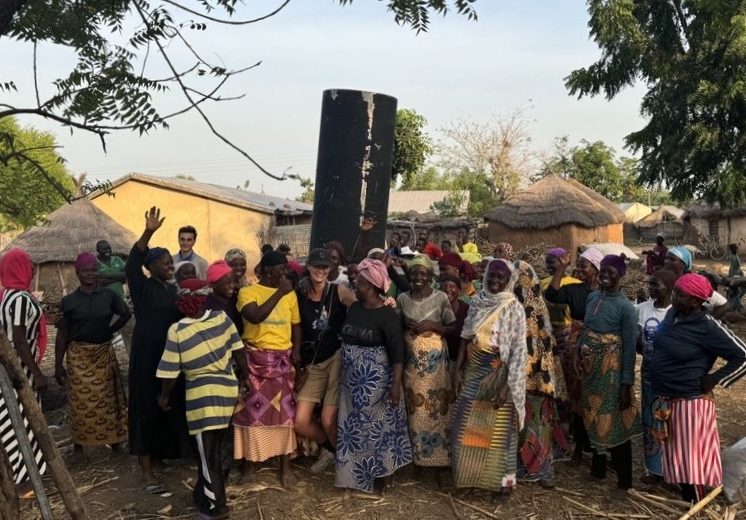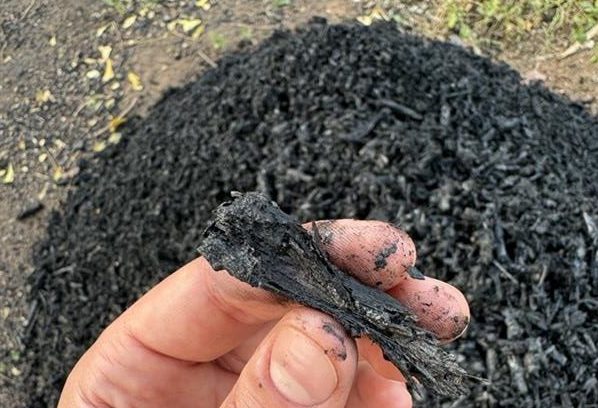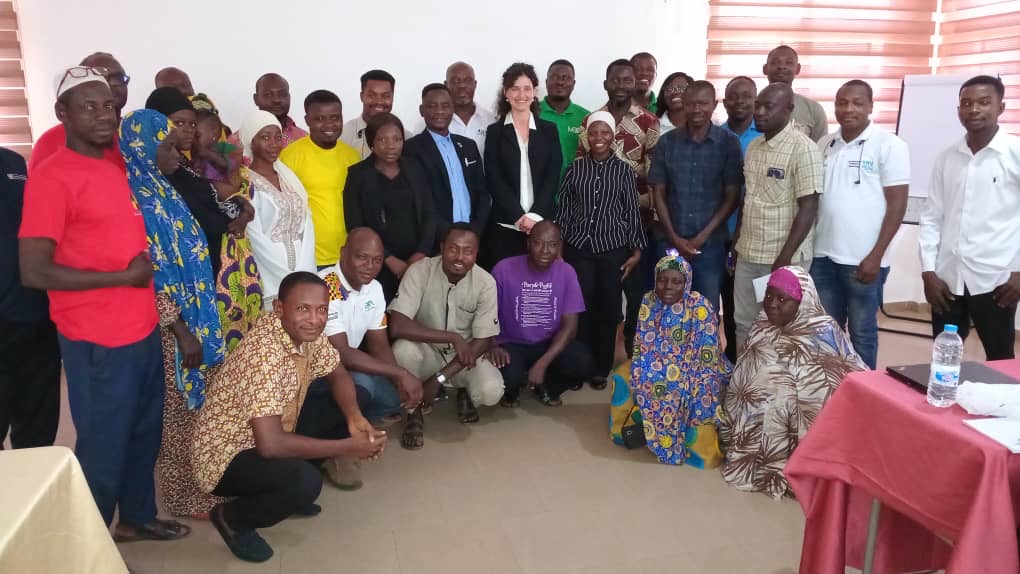- Home
- Project overview
- Negative emissions
- Cambodia & Vietnam: Biochar-based fertilizers from rice husks
- Tanzania: Industrial production of biochar
- Nepal: biochar for the reutilisation of completely depleted soils
- India: Biochar from efficient cooking stoves
- Namibia: Industrial biochar production from encroaching bushes
- Kenya: Direct Air Capture
- Ghana: Distributed Biochar Production in Smallholder Farms
- Ghana: Distributed Biochar Production in Smallholder Farms
Ghana: Distributed Biochar Production in Smallholder Farms
Women farmers producing biochar in Tamale during the pilot phase
Official emission testing with Ithaka institute: comparison of open air soil pit vs hooded Earth Kilns
Farmer during the pilot phase in Tamale
Women farmers with bags of biochar in Tamale
Women farmers after biochar production in Tamale
Comparison of biochar: on the left made with open air soil pits, on the right with Earth Kilns
Implementation phase: soybeans stalks residue dried and ready to be processed in Tolon
Implementation phase: biochar production in Tolon
Implementation phase: biochar production in Tolon
Implementation phase: biochar production in Tolon
Manufacturing site of the Earth Kilns in Yendi
Manufacturing site of the Earth Kilns in Yendi
Farmers collecting and preparing the residual biomass for biochar production
Women farmers after biochar production in Yendi
Summary
| Total savings : | Approx. 13,000 tonnes per year |
| Technology transfer : | Locally adapted pyrolysis units (hooded"Earth Kilns") that convert crop residues into biochar while improving safety and efficiency |
| Local environment : | Enhanced soil fertility through biochar application, reduced greenhouse gas emissions, and mitigation of biomass burning and decomposition. |
| Further advantages : | Creation of local jobs, promotion of circular farming models, and direct economic empowerment of women farmers. |
| Target group : | Smallholder farmers in rural Ghana |
| Financed by : | atmosfair |
| Project partners : | Carboneers |
Expanding Negative Emissions through Biochar
atmosfair is expanding its negative emissions projects in Africa. In Ghana, atmosfair produces biochar using innovative pyrolysis units that remove CO₂ from the atmosphere and permanently store it in the soil. This improves agricultural yields in regions where fields suffer from erosion and nutrient depletion.
atmosfair is currently constructing small-scale pyrolysis units across rural Ghana, starting in the Northern Region and expanding into Volta, Oti, and Ashanti. These units produce biochar far more efficiently than traditional open-air soil pits – simple pits previously used to carbonize agricultural residues. In partnership with Carboneers, atmosfair has developed steel hoods designed to cover the pits, transforming them into functional pyrolysis units: hooded “Earth Kilns”. After months of on-site testing and design improvements, this technology is now being rolled out to approximately 300 villages. Smallholder farmers will use it to convert cocoa pods, cassava, and other crop residues into biochar. The initiative is expected to remove about 13,000 tons of CO₂ from the atmosphere annually – equivalent to the emissions from 8,000 intercontinental flights.
Technology and Local Benefits
The hooded Earth Kilns are a simple but effective solution. A steel hood covers a soil pit, enabling clean pyrolysis of local crop residues. Temperatures of up to 700°C ensure that the biomass is carbonized efficiently and with minimal emissions. Compared to open pits, the system produces far less smoke and significantly reduces methane emissions. Daps Abimbola from atmosfair’s local partner Beyond Karbon explains: “The metal hood protects people while the pyrolysis takes place underneath. It prevents them from inhaling toxic smoke, which is common with traditional soil pits. The new pyrolysis units also eliminate risks associated with open fires”
Each kiln serves a group of 15 to 20 smallholder farmers. After pyrolysis, the biochar is cooled, enriched, and applied. Farmers receive €50 per batch of biochar – roughly a quarter of Ghana’s monthly per capita income. The project also creates jobs in logistics, coordination, and quality control.

Better Soils, Stronger Yields
Biochar is applied directly in the farmers fields, usually mixed with compost or manure. It improves the soil’s ability to retain water and nutrients, particularly important in northern Ghana, where soils are often dry and depleted. Farmers report higher yields and healthier crops, while relying less on expensive chemical fertilisers.
By binding nutrients and preventing them from leaching away, biochar supports sustainable agriculture and strengthens food security- one of the core Sustainable Development Goals. The carbon-rich material remains stable in the soil for centuries, restoring fertility and building long-term resilience against erosion and drought.

Continuous Improvement and Community Involvement
The Earth Kilns are continuously tested and improved in collaboration with local partners Carboneers and Beyond Karbon. atmosfair conducts regular field trials and quality checks to optimise performance and user safety. Planned upgrades include digital sensors to monitor temperature and oxygen levels, ensuring better control, emissions tracking, and transparency. atmosfair also leads stakeholder consultations with village leaders, local NGOs, and Ghanaian government representatives to align climate action with national goals. Community feedback plays a central role in shaping how the technology is rolled out.
In parallel, atmosfair is working to align the project with Ghana’s national climate goals and upcoming UN regulations under Article 6 of the Paris Agreement. Coordination with government representatives is underway to ensure long-term compliance and integration into national climate policy.

Carbon Standards International (CSI)
There is currently no authorised methodologies under the Clean Development Mechanism (CDM) and the Gold Standard for calculating carbon sinks through biochar produced in efficient cookstoves. For certification, atmosfair has chosen the Carbon Standard International (CSI), which focusses on the production and incorporation of biochar. Compared to other standards, the calculation of carbon sinks can be considered rather conservative.
Our Partner
Our partner, Carboneers specializes in developing decentralized biochar projects to achieve significant carbon dioxide removal while supporting rural farming communities. With extensive experience in training farmers and providing tools and technology, Carboneers enables the transformation of agricultural biomass into biochar. Certified by Carbon Standards International, Verra and currently under validation of Isometric, their projects not only combat climate change but also enhance tropical agriculture by improving soil fertility, water retention, and crop yields.


 Share
Share